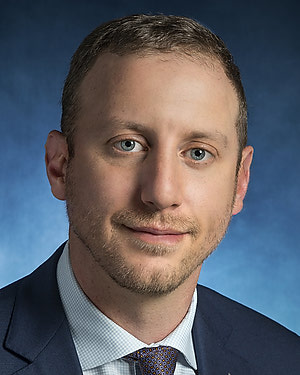-
Christopher Michael Frost, MD

Expertise: Hand Surgery, Plastic Surgery
Primary Location: Johns Hopkins Bayview Medical Center, Baltimore, MD
-
Lily Mundy, MD

Expertise: Breast Surgery, Plastic Surgery
Primary Location: Johns Hopkins Outpatient Center, Baltimore, MD
-
Rick Redett, MD

- Physician-in-Chief, Johns Hopkins Medicine
Expertise: Pediatric Plastic Surgery, Pediatric Craniofacial Plastic Surgery
Primary Location: Johns Hopkins Outpatient Center, Baltimore, MD
-
Sami H. Tuffaha, MD

- Director, Peripheral Nerve Surgery
Expertise: Plastic Surgery
Primary Location: Johns Hopkins Outpatient Center, Baltimore, MD
Arm and shoulder injuries often impact your ability to fully use your limbs, and can make daily tasks difficult. Our experts specialize in the latest research-backed techniques that help restore function and comfort.
Surgical Expertise
Rigorous medical training and breadth of knowledge, experience, and innovation mark our surgical facility as one of the best in the world.
Compassionate Care
Our surgeons are devoted to their profession and to providing attentive patient care, making themselves available and accessible to patients and their families.
Advanced Research
Our surgeons participate in and often lead in advanced research that leads to better patient outcomes.
Multidisciplinary Approach
Our surgeons work alongside their colleagues in additional specialties cross the Johns Hopkins network to offer our patients the most comprehensive care.
Request an Appointment
Schedule Online Through MyChart
Some exclusions apply.
Available for new and follow-up appointments with most providers.
Log into MyChart | Sign up for MyChart
Available for new and follow-up appointments with most providers.
Log into MyChart | Sign up for MyChart
Schedule by Phone
New and existing patients can schedule by phone using this number: 443-997-9466
International patients can request an appointment though international patient services.
Targeted Muscle Reinnervation (TMR) for Upper Extremities
TMR is a new surgical procedure that reassigns nerves that once controlled the arm and the hand. By reassigning existing nerves, doctors can make it possible for people who have had upper-arm amputations to control their prosethic devices by merely thinking about the action they want to perform. Once experimental, this innovative procedure is now available at The Johns Hopkins Hospital.
People who undergo the targeted reinnvervation surgery will be fitted with and trained to use a myoelectric prosthetic arm.
What To Expect
Those interested in the procedure to better control their prosthetic arm must undergo a medical review to determine their eligibility. In general, patients must meet the following criteria:
- Upper extremity or shoulder amputation
- Willing to participate in rehabilitation
Those who were born without part or all of their arm and those who have nerve damage, degeneration or paralysis are not candidates for this procedure.
